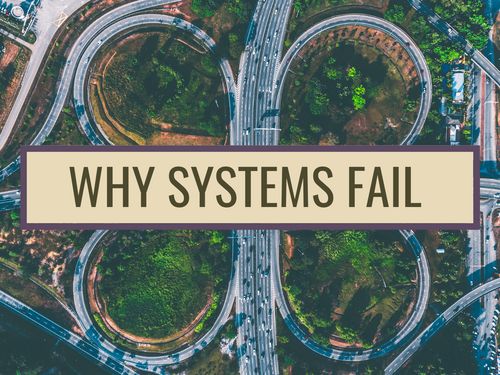Why systems fail so often - and how to make them work
Jul 18, 2021 · 2 mins read
0
Share
I discovered an old but brilliant book today: Systemantics by John Gall (1975). It asks big questions: How Do Systems Work? How Do They Fail? "Everything Is A System,” John Gall says, and he notes four major reasons why systems fail. Read on👇👇👇
Save
Share
Communication breaks down. Information "decays" inside systems. The boss's orders are misunderstood by his managers. Their orders are then misheard by the employees, who then misunderstand each other. This game of Chinese whispers happens at all levels, all the time.
Save
Share
Systems don't go away: "The Old System Is The New Problem." In the 1980s, the US funded the anti-Soviet Mujahideen in Afghanistan. The Soviet Empire fell; the Mujahideen stuck around. Its members were channeled into Al-Qaeda, who the US continues to fight till this day.
Save
Share
Systems grow until they die of absurdity. Egyptian kings were buried in simple brick structures that "gradually became more elaborate." They eventually became the Pyramids. Financing these "monsters of pride," says Gall, created unbearable stress that brought down the state.
Save
Share
New capabilities mean new flaws. The smartphone has made communication faster, but it has also perverted it in new ways. Systemantics gives the example of airplanes. The old planes could land in a ploughed field, but the new ones need “a mile of reinforced concrete.”
Save
Share
With systems, there's no neutral ground: you're always inside one, and so always have blindspots. Systemantics: "The reader is invited to ask himself: Is it possible that I am seeing the world from inside a System? The answer is always Yes. The relevant question is simply: Which
Save
Share
There is no permanent solution, only a dance of accommodation: "The word ‘Solution’ is only a fancy term for the Response of System A (ourselves) to System B (the Problem). And System B is sure to Kick Back in response to our Response, and then we must respond once again."
Save
Share
Loose systems last longer and work better. The second kidney in our body looks redundant - it occupies space without adding value. But in the rare case when the first kidney fails, it’s lifesaving. Such loose systems look inefficient when all is well, but are resilient in crises.
Save
Share
Complex systems do work, but only when they evolve from simple systems. As Gall’s Law says: “A complex system designed from scratch never works and cannot be made to work. You have to start over, beginning with a working simple system.”
Save
Share
The revolutionaries overestimate their ability to change the world. A new complex system is unlikely to work. If it works but it’s new, it won’t be complex (and so less useful). Complex and functional systems are the best, but tend to be old. Follow me here for more memos:

Save
Share
0
